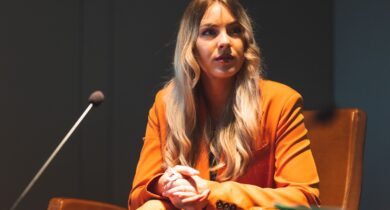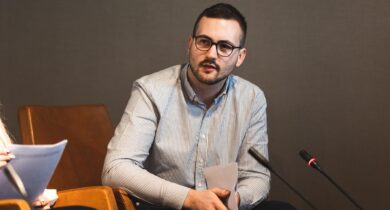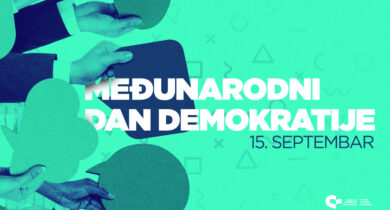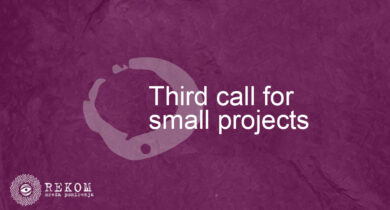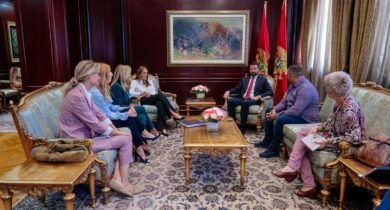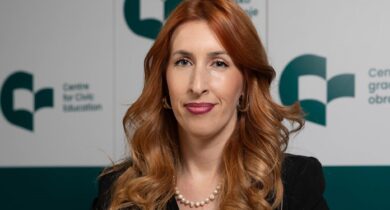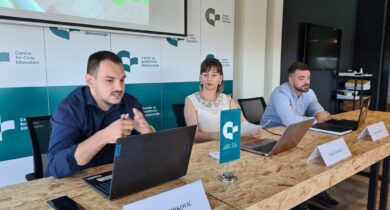Centre for Civic Education (CCE) once again points out, as the formation of the 44th Government approaches, the necessity of prioritizing the issue of the negotiation structure in the context of the required revitalization of EU negotiations, which has not been optimized in the previous period and is now practically non-functional. CCE reminds that the… »
Actual
Anti – corruption PACT
Five areas – education, healthcare, local government, security, and justice – will be the focus of the new Anti-Corruption PACT (Partnership Against Corruptive Tendencies – PACT) project, which the Centre for Civic Education (CCE) has started with the support of the United States Embassy in Podgorica, and will be implemented in collaboration with the Agency… »
Badger under the court
Several days have passed since the news broke that the depot of the High Court in Podgorica was burglarized. At that moment, I believe no one anticipated that the break-in would unfold like a script from a thriller more fitting for certain Latin American countries. And my first association was milder than reality. I connected… »
Lack of democratic consolidation in Montenegro
Ahead of 15 September 15 – the International Day of Democracy – the Centre for Civic Education (CCE) highlights the absence of essential democratic consolidation in Montenegro, along with ongoing political instability and a crisis of legitimacy within key branches of authority. Montenegro is waiting for the third Government since the multi-decade regime change in… »
Protest by 21 NGOs regarding the decision of the Government of Montenegro to support Saudi Arabia for the organization of the world exhibition EXPO 2030
Government of Montenegro Dritan Abazović, Prime Minister in technical mandate CC: members of the Government of Montenegro in the technical mandate: Vladimir Joković, Deputy Prime Minister for the Economic System and Minister of Agriculture, Forestry and Water Resources Management Ervin Ibrahimović, Deputy Prime Minister for Regional Development and Minister of Capital Investments Marko Kovač, Minister… »
Call for participation in a non-formal training programme and paid work engagement for unemployed young people from the territory of Montenegro up to the age of 30
YouthJobLink – CALL Centre for Civic Education (CCE), within the project YouthJobLink – Linking Youth & Social Enterprises, supported by the European Union through the Directorate for Finance and Contracting of EU Assistance Funds (CFCU) of the Ministry of Finance, opens CALL for participation in a non-formal training programme and paid work engagement for unemployed… »
RECOM – III renewed call for projects from CSO in B&H, Montenegro, Serbia, North Macedonia and Kosovo
Centre for Civic Education (CCE/CGO), on behalf of the RECOM Reconciliation Network, is renewing third Call for projects from civil society organizations in Bosnia and Herzegovina, Montenegro, Serbia, North Macedonia, and Kosovo Project proposals that contribute to the dissemination of knowledge about judicial facts, strengthening the voices of victims, accepting and revealing facts about wartime… »
For the first time with the President of Montenegro about the deportation of refugees
During today’s meeting with the President of Montenegro, Jakov Milatović, representatives of non-governmental organizations – Human Rights Action (HRA) Tea Gorjanc Prelević, Centre for Civic Education (CCE) Daliborka Uljarević and Tamara Milaš, and Center for Women’s and Peace Education ANIMA Ervina Dabižinović – requested from the President to use his influence for the monument to… »
State stagnates in finding the missing during the 90’s wars
On the occasion of 30 August – the International Day of the Dissapeared – the Centre for Civic Education (CCE) pays respect to all victims of enforced disappearance and reminds of the right of families to know the fate of their loved ones who are listed as missing. Respecting human rights includes establishing the truth… »
Youth between marginalization, radicalization and potential
Centre for Civic Education (CCE) today presented the study “Youth between marginalization, radicalization and potential” which compiles findings from empirical research and youth focus groups, along with a comparative review of previous youth research, with the aim to provide a deeper understanding of the everyday realities, experiences, and needs of young people in Montenegro. The… »

